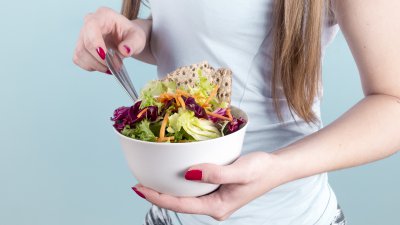
Vegetarian diet for athletes
A vegetarian diet is a diet in which we eliminate all meat products, fish, seafood, as well as products made from animal raw materials such as gelatine and animal fats of all kinds from our menu. Extreme versions of the vegetarian diet postulate the elimination of all zoonotic products, i.e. mainly dairy products and eggs. This is certainly a controversial approach to nutrition, but practice shows that it can also have its advantages. At the same time, it is also argued that such a vegetarian diet may not be suitable for athletes, because it will not provide the right amount of nutrients for people living intensively.
Capacity for a vegetarian diet
The case is still not finally closed, but it seems that it has been successfully proven that animal products are not a necessary part of the athlete's diet. Many athletes have long decided to follow a vegetarian diet and have not experienced any problems in terms of physical strength or proper performance, including during sporting activities. It should be noted, however, that in the group of tested athletes characterized by different time of using vegetarian diet, no special losses or hard-numbered benefits of changing the diet were observed.  However, it is important to choose the right dietary components, balance it and diversify it with properly selected healthy products. A vegetarian diet, if selected properly, will be a neutral factor for the athlete.
However, it is important to choose the right dietary components, balance it and diversify it with properly selected healthy products. A vegetarian diet, if selected properly, will be a neutral factor for the athlete.
Protein
Protein should be the most important issue for an athlete in a vegetarian diet. The diet should be chosen in such a way that no additional supplementation is needed. The problem results from the fact that the demand for protein of a person performing resistance (strength) training is more than twice as much as the demand of a person outside the training. Many people give up their vegetarian diet because they are afraid that it will not provide enough protein for muscle tissue growth, but this is not true. In a vegetarian diet, the problem is more often a limited supply of calories.
The trainer should check carefully which amino acids are present in the food he or she eats to ensure that they complement each other properly. It is rare for any plant to be rich in more than one amino acid, and the human body needs a whole range of amino acids, which is widely available in animal products.
View

What are the origins of a stag party tradition

The fitness equipment you should buy - a guide to buying the best workout equipment





























